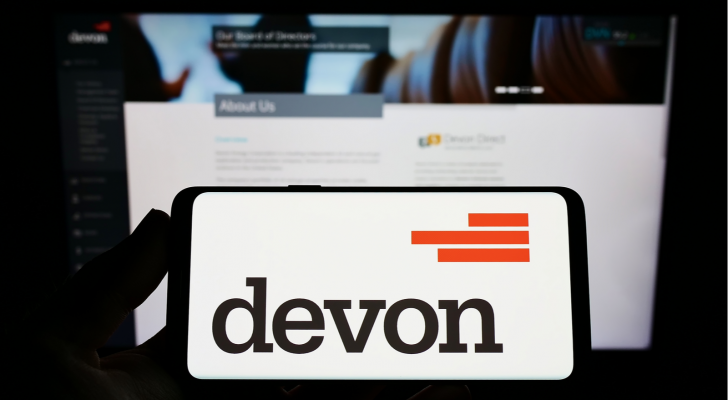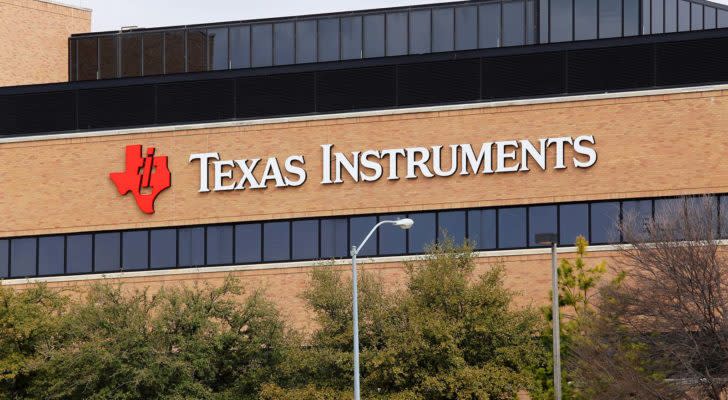The 7 Best Long-Term Dividend Stocks to Buy in May
Amidst the stock market landscape’s choppiness, many investors seek stability by exploring dividend stocks to secure dependable returns.
Both in the short term and the long run, stocks with average to above-average yields can return consistent gains, combining price appreciation and payouts.
However, focusing on quality is imperative when focusing on the best dividend stocks to buy now.
InvestorPlace - Stock Market News, Stock Advice & Trading Tips
Factors including dividend growth track record, payout ratios, and safety are essential when conducting dividend stock analysis for 2023.
High-quality dividend growth stocks can offer reliable payouts that increase over time, accompanied by a greater probability of long-term capital appreciation as shares rise in line with earnings growth.
The optimal strategy for long-term dividend investing involves effectively targeting stocks with an established history and a promising yield.
Devon Energy | $50.36 | |
Texas Instruments | $165.82 | |
Coca-Cola | $64.02 | |
NextEra Energy | $75.51 | |
Johnson & Johnson | $162.68 | |
Cisco | $46.25 | |
Restaurant Brands | $71.58 |
Devon Energy (DVN)

Source: T. Schneider / Shutterstock.com
Devon Energy (NYSE:DVN) is an Oklahoma City-based hydrocarbon exploration business that stands out as one of the top-income stocks in its niche.
It boasts an impressive 4-year average dividend yield of 4.7%, with a manageable payout ratio of 51.68%. It‘s paid a dividend in the past 17 consecutive years, with five consecutive years of dividend growth.
In its fourth quarter, Devon Energy unveiled an 11% fixed dividend increase for 2023. It plans to allocate $3.6 billion to $3.8 billion toward capital expenditures and distribute roughly 50% of its cash flows from oil this year.
It’s coming off the back of a record year for the business, where its top and bottom-line metrics have raced past sector and historical averages. Despite the impressive performance, it trades at just two times forward sales estimates in the past year.
Texas Instruments (TXN)

Source: Katherine Welles / Shutterstock.com
Texas Instruments (NASDAQ:TXN) is a top semiconductor designer and manufacturer with an excellent track record of growth across both lines.
Unfortunately, its business has been experiencing some challenges lately due to a deteriorating economic outlook, customer inventory adjustments, and a slowdown in the semiconductor sphere. However, these factors are temporary in nature, which shouldn’t deter long-term investors.
History has shown that Texas Instruments can navigate economic cycles effectively, delivering excellent returns to investors over time.
It boasts a robust dividend profile, with a 3% yield and 17 years of consecutive payout growth. Its dividend-paying ability is incredibly strong 5-year levered free cash flow margins at over 27%.
Texas Instruments presents a promising opportunity for those with a long-term investing horizon.
Coca-Cola (KO)

Source: Fotazdymak / Shutterstock.com
Coca-Cola (NYSE:KO) is a prime option for risk-averse, long-term investors. This iconic brand boasts a global presence and a strong foothold in the soft drink market. As a dividend stock worth considering, Coca-Cola hasn’t reduced its dividend for 60 consecutive years, reflecting a business that consistently reinvests in growth.
Though its dividend yield is rather unattractive at just 3%, the true allure of Coca-Cola lies in its predictability. This extends beyond its stable dividend to its stable share price. Moreover, its dependability is based on its consistently growing revenues and earnings, even in the most adverse business conditions. Its revenue growth of over 8.3%, roughly 6% higher than its 5-year average, evinces this.
Over the past decade, its consistent track record has led to a total return of over 100%.
NextEra Energy (NEE)

Source: madamF / Shutterstock.com
NextEra Energy (NYSE:NEE) is the world’s largest producer of wind and solar energy, but based on the colossal growth runway in renewables.
It boasts a rock-solid financial standing and a history of generating shareholder value, with an impressive 370% return over the past decade and an 11.8% annual 5-year dividend growth rate.
The company has increased its dividends for over 25 consecutive years, anticipating approximately 10% dividend growth through 2024.
The company recently reported better-than-expected first-quarter results, with revenue reaching $6.72 billion. Moreover, it added 2,020 megawatts of new renewables to its backlog during the quarter, while its utility arm expanded its solar portfolio to 4,600 megawatts. Moreover, earnings per share were at 84 cents, surpassing estimates by 12%.
Based on its long-term potential, NEE stock has the potential to reach $100 this year in light of conducive market conditions.
Johnson & Johnson (JNJ)

Source: Alexander Tolstykh / Shutterstock.com
Johnson & Johnson (NYSE:JNJ) is a blue-chip “dividend king,” so its position within the resilient healthcare sector only adds to its allure.
However, its shares have underperformed remarkably year-to-date as the company grappled with billions in talcum powder-related legal liabilities. Its current yield has climbed to 2.8%, which is more than 100% than the sector median.
Despite these challenges, J&J remains a strong company with a consistent track record. While its recent performance doesn’t guarantee stability during a market downturn, it’s a stock that cannot be overlooked.
JNJ stock trades less than 15 times earnings, with analysts forecasting mid-single-digit revenue and earnings growth this year. The company just raised its dividend for the 61st consecutive year, showcasing its enduring commitment to shareholders.
Cisco (CSCO)

Source: Ken Wolter / Shutterstock.com
Tech giant Cisco (NASDAQ:CSCO) has successfully evolved into a top-tier software provider, offering security, network monitoring, and collaboration software add-ons for its networking equipment.
Its unique transformation makes it positioned for long-term success, making it an ideal dividend stock to buy for the long haul. It flaunts an enviable dividend profile, with a 3.4% yield and 11 consecutive years of dividend growth.
Compared to its peers, the company’s impressive performance in the face of the recent technology demand slump shows the strength of its business model. Cisco provides fundamental products that have proven to be critical for organizations.
CEO Chuck Robbins said during its last earnings call that despite macro headwinds, demand, and win rates remained consistent, emphasizing the resilience of Cisco’s offerings.
Its vigorous profitability profile sets Cisco apart from its competition, with net income, EBITDA, FCF, and other core metrics surpassing industry estimates by a wide margin.
Restaurant Brands (QSR)

Source: Shutterstock
Restaurant Brands (NYSE:QSR), the powerhouse parent company of renowned fast-food chains such as Tim Hortons and Burger King, has grown remarkably in recent quarters.
Despite inflation and other macro headwinds, Restaurant Brands International outperformed earnings expectations on both lines by comfortable margins in its first quarter.
The firm served up an appetizing 75 cents in earnings per share in the first quarter, beating expectations by 11 cents.
It posted a 9.7% increase in revenue year-over-year to $1.59 billion, which was $30 million above estimates. With double-digit comparable sales and system-wide sales growth, it kicked off the year on a high note.
This top-line sales momentum translated into bottom-line growth for the company, showcasing a truly flavorsome performance.
Furthermore, the resiliency of its business has helped maintain its dividend of $2.20 per share. Payouts for the firm have increased by seven consecutive years, with more than 25% dividend growth in the past five years, making it one of the dividend stocks you need to own.
On the date of publication, Muslim Farooque did not have (either directly or indirectly) any positions in the securities mentioned in this article. The opinions expressed in this article are those of the writer, subject to the InvestorPlace.com Publishing Guidelines.
Muslim Farooque is a keen investor and an optimist at heart. A life-long gamer and tech enthusiast, he has a particular affinity for analyzing technology stocks. Muslim holds a bachelor’s of science degree in applied accounting from Oxford Brookes University.
More From InvestorPlace
The post The 7 Best Long-Term Dividend Stocks to Buy in May appeared first on InvestorPlace.

 雅虎香港財經
雅虎香港財經 